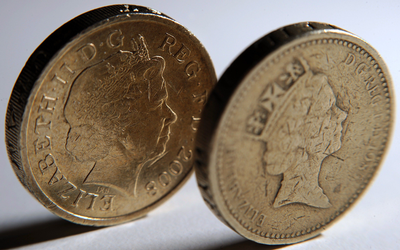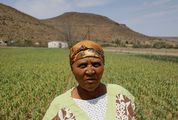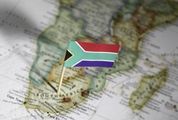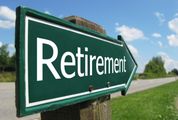PEOPLE of no lesser stature than Franklin D Roosevelt and Winston Churchill signed the Atlantic Charter in 1941. It contained, among eight other principles, the right to self-determination — the right to a chosen sovereignty with independent political status.
A sister principle, freedom of association, the right to join and leave groups of your choice, is also entrenched in any number of human rights treaties.
Taken together, you may be led to believe you can do what you like on your own or join any group of like-minded people to do whatever you want to do together. Nirvana. Of course, it isn’t at all like this in real life. The lobbyists for freedom of movement haven’t made much progress either.
If you want to be totally independent as an individual, you essentially have to not want or need anything — you need to find your own sovereign spot where there is natural water, a pleasant climate, enough food to eat and nothing that wants to eat you. Some sort of fictitious island off the coast of SA, perhaps? No such place exists as an unclaimed sovereign.
Religions transcend geographic and other man-made borders and survive changes in leadership because their eternal cause is beyond incumbent leadership. For political and economic groups on a grand scale, that is not the case.
Association and independence for players in the global economy are no more than a series of balances and fragile counterbalances, often dependent on the whims of very few among us: our leaders, whether they are elected or ordained, international leaders, and their political agendas of the day.
The economic bloc that is the European Union (EU) is under threat of breaking up. The EU was arguably formed in 1958 by the so-called Inner Six countries of Belgium, France, Germany, Italy, Luxembourg and the Netherlands, and it has now grown through various treaties into a 28-member bloc with aspirant economic and political goals — but, it seems, not yet common cause.
Greece went through various throes of alternatively wanting to leave the EU or being thrown out. I would have supported either. Despite common monetary policy, Greece’s wayward (certainly not austere) economic behaviour highlighted the flaw in having one currency without common fiscal discipline. Greece has a gross domestic product of about €250bn, which is just over 1% of the €20-trillion of the EU, and yet it destabilised the whole bloc. How tenuous is that?
It doesn’t seem to take too much to place the future of the EU in the balance. Britain goes to the polls in less than four months to decide by referendum whether it should leave the EU. That could open the floodgates. The prime minister thinks they shouldn’t leave, the mayor of London thinks they should. Who may be right (if there is such binary clarity) is beyond me and doesn’t affect us much down here on the southern tip of Africa.
Beyond the specific member country issues of Britain and Greece (and Denmark and whichever other) there are more pervasive challenges to loosely tied mixtures of sovereignty and community. The migrant crisis could be the straw that breaks the back of the EU camel.
What was Angela Merkel thinking when she seemingly opened her arms to the wretched migrant population of the world? The German chancellor, easily one of the most powerful and respected political leaders of the past decade, must have had her reasons. Perhaps she needed lots of young people, disenfranchised and desperate to earn a living, to come and work in Germany and do the jobs Germans prefer not to? She got what she was looking for; they came in droves, over 1-million of them. Her warm embrace was not eagerly, if at all, shared by the other 28 members of the EU.
Her plan would have been a lot easier to implement if migrants en route to Germany didn’t have to pass through other countries to get there. The whole system has clogged up, with migrants at various stages of their journey being trapped in one country or let through by another.
Countries at the periphery have felt the brunt of this. Only last week, Greece just about severed diplomatic ties with Austria because it wasn’t playing fair. Everyone is trying to withdraw or at least limit the infiltration now — 75% of the Bundestag voted for increased restrictions, easier deportation rules and limits on timing for joining families. Meanwhile, there are reportedly 2.5-million Syrians in Turkey, waiting for some place to go, anywhere but home. The problem isn’t going away and it’s all a bit of a mess.
The curious thing about the EU is that, unlike the lyrics of the Eagles’s Hotel California, "you can check out any time, but you can never leave", you can leave the EU, it seems, whenever you want to — just call a referendum. Despite Maastricht and any number of other treaties, membership of the EU is, after all, a voluntary association. An act by any of the independent parliaments could repeal its membership and move on — that’s certainly the case for Britain. So, maybe the EU has captured the best of both worlds? It is, however, less often about whether you have the freedom to choose (on paper, so to speak), or whether you really have the freedom to choose.
The EU was founded on sound economic logic. Individual countries in the eurozone were being squeezed between the economic scale of the US and the burgeoning power of China. However, countries joined economic forces, but never truly bonded. It is becoming increasingly clear that they never found true common cause beyond things as visible as one currency and the Schengen visa.
What about us? Should we join or form an African Economic Union? Do we want to be, are we still or could we be the Germany in that mix? How would we cope with any number of Greeces that would be our new currency partners?
I think we’d be better off alone. I think sovereignty is paramount; without it you lose the right to choose. The challenge, of course, is that if you want independence you have to be independently viable. The minute we, for instance, were to ask for financial assistance instead of presenting an attractive investment case, we would have to submit to the terms of our suppliers of capital, our new masters. There is an inherent contradiction in the freedom required to achieve commercial independence and being governed by the rules of bail-out capital.
That is why we have to do it ourselves, that is why we have to protect our sovereign rating — because we are rich, not because we are poor.
There are many that would supply SA with credit or agree trade terms that would enslave rather than liberate us, in deals that would risk our natural resources, and resourcefulness. Freedom of choice is earned, not granted.
• Barnes is the South African Post Office CEO

Pound Coin. Picture:AFP PHOTO / BEN STANSALL
PEOPLE of no lesser stature than Franklin D Roosevelt and Winston Churchill signed the Atlantic Charter in 1941. It contained, among eight other principles, the right to self-determination — the right to a chosen sovereignty with independent political status.
A sister principle, freedom of association, the right to join and leave groups of your choice, is also entrenched in any number of human rights treaties.
Taken together, you may be led to believe you can do what you like on your own or join any group of like-minded people to do whatever you want to do together. Nirvana. Of course, it isn’t at all like this in real life. The lobbyists for freedom of movement haven’t made much progress either.
If you want to be totally independent as an individual, you essentially have to not want or need anything — you need to find your own sovereign spot where there is natural water, a pleasant climate, enough food to eat and nothing that wants to eat you. Some sort of fictitious island off the coast of SA, perhaps? No such place exists as an unclaimed sovereign.
Religions transcend geographic and other man-made borders and survive changes in leadership because their eternal cause is beyond incumbent leadership. For political and economic groups on a grand scale, that is not the case.
Association and independence for players in the global economy are no more than a series of balances and fragile counterbalances, often dependent on the whims of very few among us: our leaders, whether they are elected or ordained, international leaders, and their political agendas of the day.
The economic bloc that is the European Union (EU) is under threat of breaking up. The EU was arguably formed in 1958 by the so-called Inner Six countries of Belgium, France, Germany, Italy, Luxembourg and the Netherlands, and it has now grown through various treaties into a 28-member bloc with aspirant economic and political goals — but, it seems, not yet common cause.
Greece went through various throes of alternatively wanting to leave the EU or being thrown out. I would have supported either. Despite common monetary policy, Greece’s wayward (certainly not austere) economic behaviour highlighted the flaw in having one currency without common fiscal discipline. Greece has a gross domestic product of about €250bn, which is just over 1% of the €20-trillion of the EU, and yet it destabilised the whole bloc. How tenuous is that?
It doesn’t seem to take too much to place the future of the EU in the balance. Britain goes to the polls in less than four months to decide by referendum whether it should leave the EU. That could open the floodgates. The prime minister thinks they shouldn’t leave, the mayor of London thinks they should. Who may be right (if there is such binary clarity) is beyond me and doesn’t affect us much down here on the southern tip of Africa.
Beyond the specific member country issues of Britain and Greece (and Denmark and whichever other) there are more pervasive challenges to loosely tied mixtures of sovereignty and community. The migrant crisis could be the straw that breaks the back of the EU camel.
What was Angela Merkel thinking when she seemingly opened her arms to the wretched migrant population of the world? The German chancellor, easily one of the most powerful and respected political leaders of the past decade, must have had her reasons. Perhaps she needed lots of young people, disenfranchised and desperate to earn a living, to come and work in Germany and do the jobs Germans prefer not to? She got what she was looking for; they came in droves, over 1-million of them. Her warm embrace was not eagerly, if at all, shared by the other 28 members of the EU.
Her plan would have been a lot easier to implement if migrants en route to Germany didn’t have to pass through other countries to get there. The whole system has clogged up, with migrants at various stages of their journey being trapped in one country or let through by another.
Countries at the periphery have felt the brunt of this. Only last week, Greece just about severed diplomatic ties with Austria because it wasn’t playing fair. Everyone is trying to withdraw or at least limit the infiltration now — 75% of the Bundestag voted for increased restrictions, easier deportation rules and limits on timing for joining families. Meanwhile, there are reportedly 2.5-million Syrians in Turkey, waiting for some place to go, anywhere but home. The problem isn’t going away and it’s all a bit of a mess.
The curious thing about the EU is that, unlike the lyrics of the Eagles’s Hotel California, "you can check out any time, but you can never leave", you can leave the EU, it seems, whenever you want to — just call a referendum. Despite Maastricht and any number of other treaties, membership of the EU is, after all, a voluntary association. An act by any of the independent parliaments could repeal its membership and move on — that’s certainly the case for Britain. So, maybe the EU has captured the best of both worlds? It is, however, less often about whether you have the freedom to choose (on paper, so to speak), or whether you really have the freedom to choose.
The EU was founded on sound economic logic. Individual countries in the eurozone were being squeezed between the economic scale of the US and the burgeoning power of China. However, countries joined economic forces, but never truly bonded. It is becoming increasingly clear that they never found true common cause beyond things as visible as one currency and the Schengen visa.
What about us? Should we join or form an African Economic Union? Do we want to be, are we still or could we be the Germany in that mix? How would we cope with any number of Greeces that would be our new currency partners?
I think we’d be better off alone. I think sovereignty is paramount; without it you lose the right to choose. The challenge, of course, is that if you want independence you have to be independently viable. The minute we, for instance, were to ask for financial assistance instead of presenting an attractive investment case, we would have to submit to the terms of our suppliers of capital, our new masters. There is an inherent contradiction in the freedom required to achieve commercial independence and being governed by the rules of bail-out capital.
That is why we have to do it ourselves, that is why we have to protect our sovereign rating — because we are rich, not because we are poor.
There are many that would supply SA with credit or agree trade terms that would enslave rather than liberate us, in deals that would risk our natural resources, and resourcefulness. Freedom of choice is earned, not granted.
• Barnes is the South African Post Office CEO





















Change: 0.80%
Change: 0.61%
Change: -0.25%
Change: 0.13%
Change: 4.02%
Data supplied by Profile Data
Change: 1.13%
Change: 0.37%
Change: 0.80%
Change: 0.00%
Change: 0.33%
Data supplied by Profile Data
Change: -2.03%
Change: -1.51%
Change: -1.45%
Change: -2.26%
Change: -0.91%
Data supplied by Profile Data
Change: 0.07%
Change: 3.71%
Change: 2.65%
Change: 3.36%
Change: 4.99%
Data supplied by Profile Data